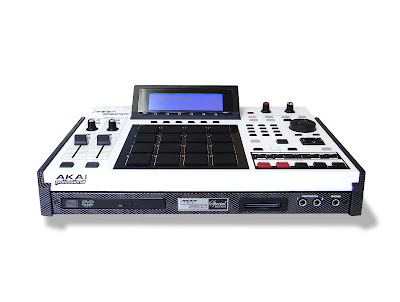
Now, load some of your own personal stash of drum hits from disk (most hip-hop producers will have their own hand compiled collection) into some of the other pads and tap in your drum parts, letting the sequencer's input quantisation take care of any timing inaccuracies. Hit one of the MPC's rubber pads and assign the sample you've just recorded, set the tempo with the Tap Tempo button, and loop-record a four-bar pattern, triggering your sample wherever you want it. Your DJ mixer's already connected to the sampler's recording inputs, so a couple of button presses records your chosen snippet. You've dug out a piece of vinyl you want to build into a track. Picture the setup: pretty much any MPC, some turntables with a DJ mixer, a couple of sound modules, a MIDI keyboard. In this context the MPC becomes a beautifully adapted production tool, providing just what's required to get the job done at high speed. This is a genre where weeks can be spent digging through old vinyl for just the right source material, but where spontaneity and speed are the rule of the studio. I doubt, however, that Akai are too concerned by these apparent handicaps, because the MPC2500, like illustrious forebears such as the MPC60 and MPC3000, is sure to be welcomed with open arms by producers of hip-hop, the most lucrative musical style on the planet. The unit's raw feature set does little to dispel this impression: the sequencer has fewer frills than the Ikea catalogue, while the sampler has very basic modulation options and no proper multisampling. You'd be forgiven for viewing Akai's new MPC2500 as something of an anachronism, packaging as it does a MIDI sequencer and a sampler into a single stand-alone unit, long after computers have all but annihilated the hardware market in these areas.

Akai have updated the classic sampling sequencer concept last embodied in the MPC2000XL, but have they managed to preserve the magic formula that made the series a success?


 0 kommentar(er)
0 kommentar(er)
